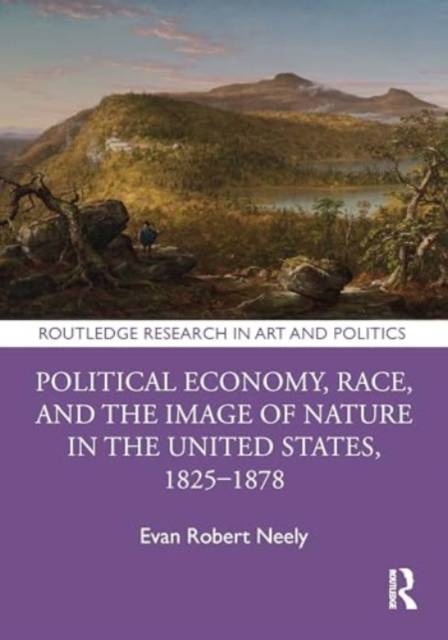
- Afhalen na 1 uur in een winkel met voorraad
- Gratis thuislevering in België vanaf € 30
- Ruim aanbod met 7 miljoen producten
- Afhalen na 1 uur in een winkel met voorraad
- Gratis thuislevering in België vanaf € 30
- Ruim aanbod met 7 miljoen producten
Political Economy, Race, and the Image of Nature in the United States, 1825-1878
Evan Robert NeelyOmschrijving
Political Economy, Race, and the Image of Nature in the United States, 1825-1878 is an interdisciplinary work analyzing the historical origins of a dominant concept of Nature in the culture of the United States during the period of its expansion across the continent.
Chapters analyze the ways in which "Nature" became a discursive site where theories of race and belonging, adaptation and environment, and the uses of literary and pictorial representation were being renegotiated, forming the basis for an ideal of the human and the nonhuman world that is still with us. Through an interdisciplinary approach involving the fields of visual culture, political economy, histories of racial identity, and ecocritical studies, the book examines the work of seminal figures in a variety of literary and artistic disciplines and puts the visual culture of the United States at the center of intellectual trends that have enormous implications for contemporary cultural practice.
The book will be of interest to scholars working in art history, visual culture, American studies, environmental studies/ecocriticism, critical race theory, and semiotics.
Specificaties
Betrokkenen
- Auteur(s):
- Uitgeverij:
Inhoud
- Aantal bladzijden:
- 222
- Taal:
- Engels
- Reeks:
Eigenschappen
- Productcode (EAN):
- 9781032614007
- Verschijningsdatum:
- 1/05/2024
- Uitvoering:
- Hardcover
- Formaat:
- Genaaid
- Afmetingen:
- 175 mm x 246 mm
- Gewicht:
- 706 g

Alleen bij Standaard Boekhandel
Beoordelingen
We publiceren alleen reviews die voldoen aan de voorwaarden voor reviews. Bekijk onze voorwaarden voor reviews.











